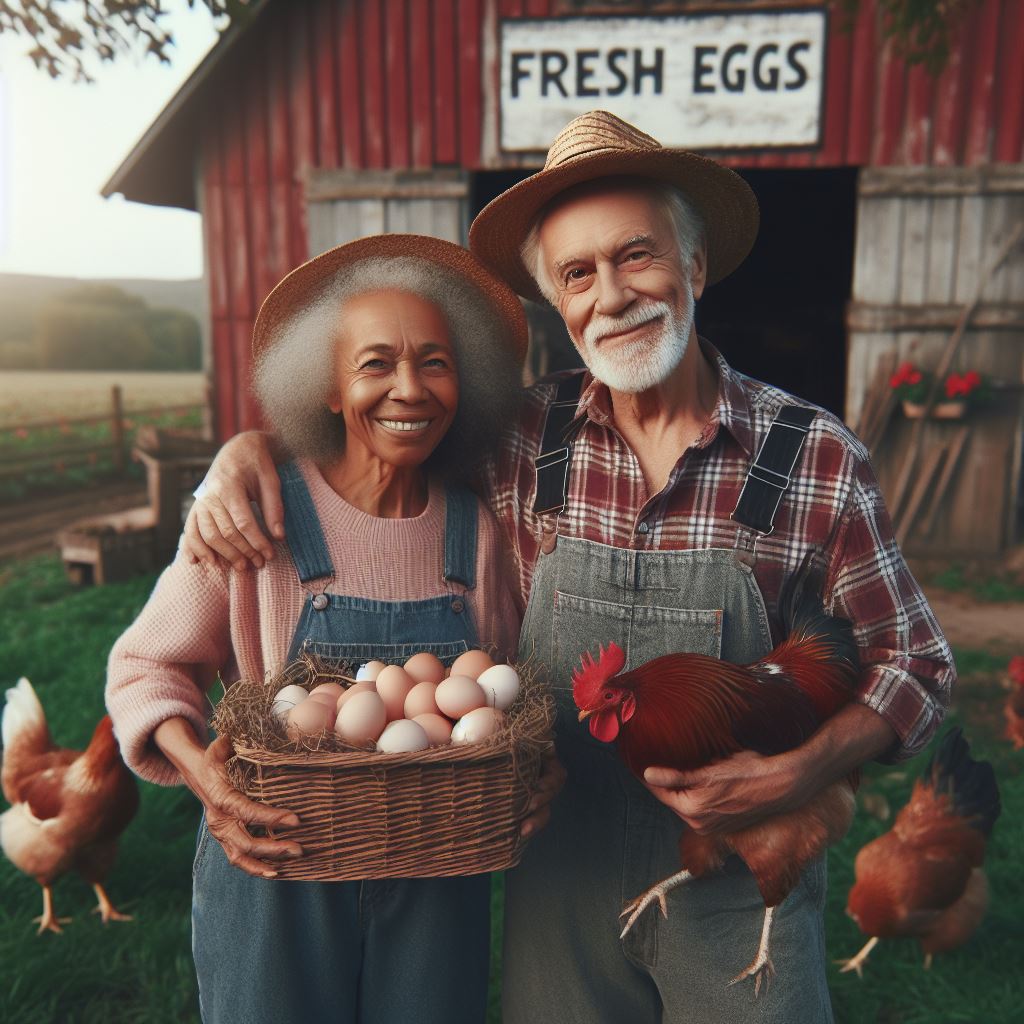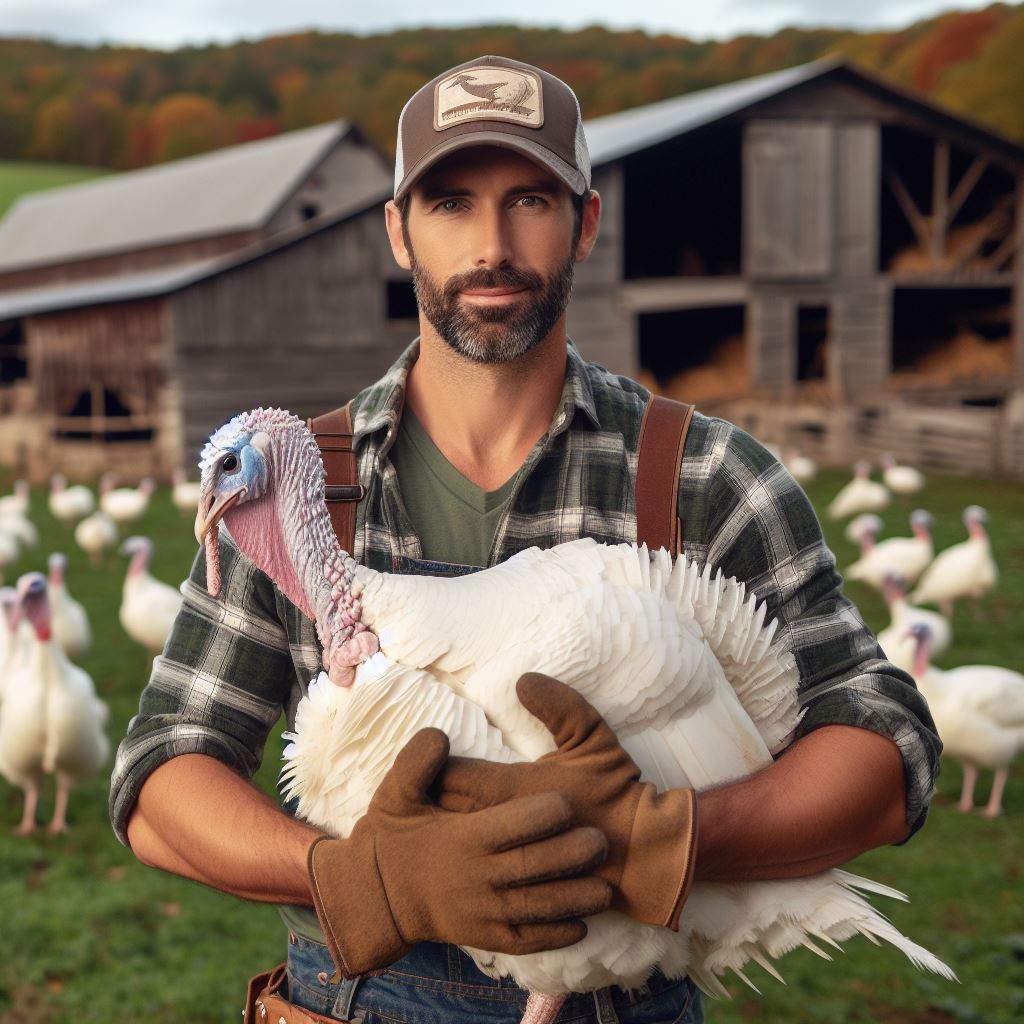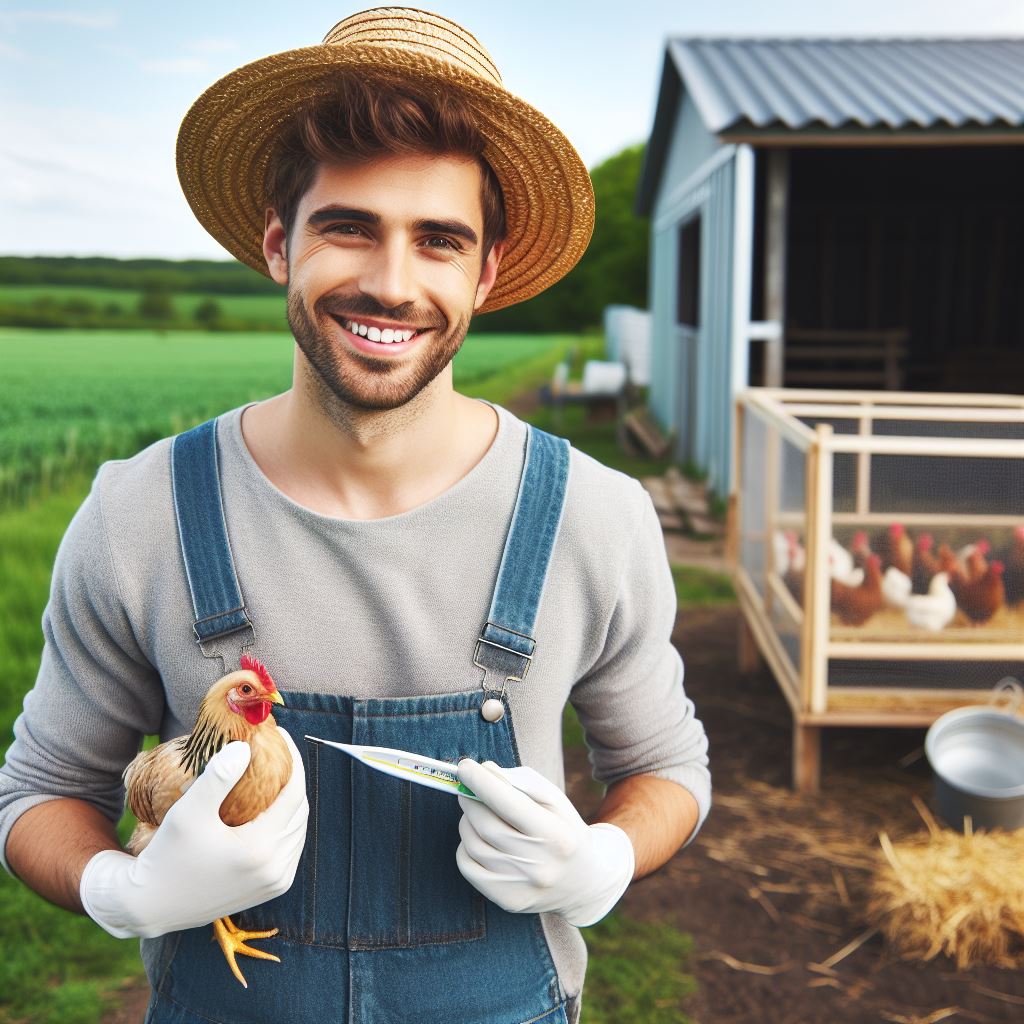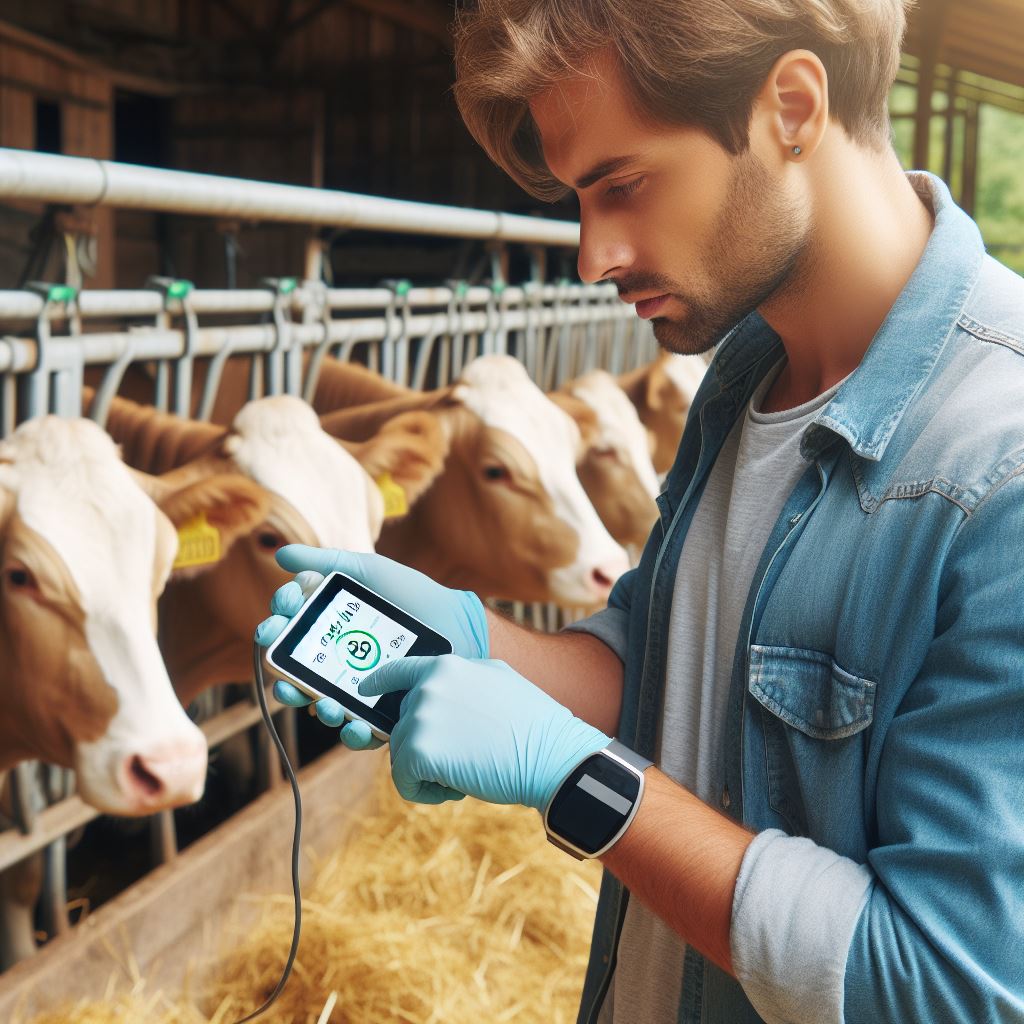Introduction
A backyard farm in the US can greatly benefit from choosing the right chicken breed.
Choosing the correct chicken breed is crucial to ensure the success and productivity of your backyard farm.
Importance of choosing the right chicken breed for backyard farms in the US:
By selecting the suitable chicken breed, you can enhance the overall performance and sustainability of your farm.
The right breed can provide a consistent supply of eggs and maintain good meat quality.
Furthermore, selecting the appropriate breed can ensure adaptability to the local climate and promote docility and friendliness.
Overview of the criteria for selecting the best chicken breeds
- Egg production: Some breeds are renowned for their high egg production, making them ideal for egg-focused backyard farms.
- Meat quality: If your primary aim is meat production, certain breeds are known for their superior meat qualities.
- Adaptability to the local climate: Choosing a breed that can handle the specific climatic conditions of your area is crucial for their survival.
- Docility and friendliness: For those seeking a breed that is easy to handle and interact with, friendlier chicken breeds are preferred.
Consideration of these factors is essential in selecting the best chicken breeds for backyard farms in the US.
Each criterion plays a vital role in determining the breed that will thrive and provide optimal results on your farm.
By carefully considering these factors, you can ensure the success and satisfaction of your backyard farming endeavors.
Egg Production
When it comes to backyard farming, having chickens that produce a substantial number of eggs is often a top priority for many people.
The key to a successful and fulfilling chicken-keeping experience lies in choosing the right chicken breeds known for high egg production.
In this section, we will explore some of the top chicken breeds that can provide you with an abundant supply of fresh eggs.
Top chicken breeds known for high egg production
Rhode Island Red
The Rhode Island Red is a classic American breed that is renowned for its exceptional egg-laying abilities.
These chickens are consistent layers of large, brown eggs, typically producing around 5-7 eggs per week.
Leghorn
The Leghorn breed originated in Italy and is prized for its high egg production rates.
Transform Your Agribusiness
Unlock your farm's potential with expert advice tailored to your needs. Get actionable steps that drive real results.
Get StartedLeghorns are known to lay a remarkable number of white eggs, averaging 4-6 per week.
They are also efficient feed converters, making them a popular choice for backyard farming.
Sussex
The Sussex breed is not only valued for its beauty but also for its excellent egg-laying capabilities.
These chickens can lay around 4-5 eggs per week, and their eggs come in various shades of brown.
Sussex chickens are known for their friendly and docile nature, making them great for families and beginners.
Australorp
The Australorp breed hails from Australia and holds the world record for egg production.
These chickens can lay a remarkable number of brown eggs, averaging around 5-7 per week.
If you’re looking for chickens that consistently produce a high volume of eggs, Australorps are an excellent choice.
Comparison of egg production rates
When evaluating chicken breeds for egg production, it’s crucial to consider two key factors: the average number of eggs per week and the reliability of consistent egg-laying
Average number of eggs per week
The higher the number of eggs a breed can produce per week, the more advantageous it would be for egg-centric backyard farming.
Rhode Island Reds and Australorps, with their 5-7 eggs per week, stand out in this category.
Reliability of consistent egg-laying
It’s essential to select chicken breeds that consistently lay eggs throughout the year, as some breeds may be more prone to seasonal fluctuations in egg production.
Rhode Island Reds, Leghorns, and Australorps are known for their reliable and year-round egg-laying capabilities.
When choosing chicken breeds, remember that factors such as climate, space availability, and personal preferences also play a role.
However, the breeds mentioned in this sectionare recognized for their egg production, making them among the top choices for backyard farms in the US.
Read: Poultry Management: Key Techniques
Meat Quality
When it comes to raising chickens for meat on your backyard farm, selecting the right breed is crucial.
Not all chicken breeds are suitable for meat production, as some are better known for their egg-laying abilities or ornamental qualities.
In this section, we will explore the best chicken breeds for backyard farms in the US, with a specific focus on their meat quality.
Chicken breeds suitable for backyard farms with a focus on meat
Cornish Cross
The Cornish Cross is one of the most popular breeds for meat production.
They are known for their rapid growth and efficient feed conversion.
These chickens reach market weight of around 5-6 pounds in just 8-9 weeks.
Jersey Giant
As the name suggests, Jersey Giants are known for their large size.
They can weigh up to 10 pounds or more, making them an excellent choice for those looking for bigger birds.
Showcase Your Farming Business
Publish your professional farming services profile on our blog for a one-time fee of $200 and reach a dedicated audience of farmers and agribusiness owners.
Publish Your ProfileTheir meat is flavorful and tender.
Orpington
Orpington chickens are appreciated for their versatility as they are known for both their egg-laying capabilities and meat quality.
They grow to a good size and produce rich, flavorful meat.
Comparison of meat quality characteristics
Flavor and tenderness
When it comes to meat quality, flavor and tenderness are essential factors.
The Cornish Cross is favored for its mild and tender meat, while Jersey Giants are known for their rich, succulent flavor.
Orpington chickens offer a balance of both flavor and tenderness.
Market weight and rate of growth
If you want to raise chickens for a larger market weight, Jersey Giants are the best choice due to their size.
However, if you’re looking for faster growth and a quicker turnaround time, the Cornish Cross is unbeatable.
Suitability for free-range or confinement
Some backyard farmers prefer to let their chickens roam freely, while others opt for confinement.
When it comes to free-range suitability, Orpington chickens are known for their ability to forage and adapt to varying environments.
On the other hand, the Cornish Cross is better suited for confinement due to its size and rapid growth rate.
Essentially, selecting the right breed of chicken is crucial when it comes to meat production on backyard farms.
The Cornish Cross, Jersey Giant, and Orpington are all excellent choices, each offering unique characteristics in terms of flavor, tenderness, market weight, rate of growth, and suitability for free-range or confinement.
Consider your specific needs and preferences to make the best choice for your backyard farm.
Read: Layer vs. Broiler: Choosing Your Poultry Path
Adaptability to Local Climate
When it comes to raising chickens in backyard farms across the US, it is important to consider the adaptability of different chicken breeds to the local climate.
Depending on whether you live in the colder regions of the country or the hotter southern areas, there are specific breeds that are better suited to thrive.
Chicken breeds suitable for different climate zones in the US
Cold-hardy breeds for northern regions
For those residing in the northern regions where winters can be harsh, it is essential to choose chicken breeds that are cold-hardy.
These breeds have the ability to withstand low temperatures and even snow. Some popular cold-hardy breeds include the Rhode Island Red, Plymouth Rock, and Wyandotte.
These breeds have the necessary features such as a dense feather coat and a compact body to cope with the cold.
Heat-tolerant breeds for southern regions
On the other hand, if you live in the southern regions where summers can be scorching hot, it is crucial to select chicken breeds that are heat-tolerant.
These breeds are better able to handle high temperatures without suffering from heat stress. Some well-known heat-tolerant breeds include the Leghorn, Sussex, and Orpington.
These breeds have larger combs and wattles, which helps dissipate heat more efficiently.
Insights on breed selection based on local weather conditions
When considering breed selection, it is important to take into account the specific weather conditions in your local area.
If you experience long, harsh winters with heavy snowfall, focusing on cold resistance is paramount.
Look for breeds that have been known to thrive in colder climates and have lower mortality rates in frigid weather.
Conversely, if you live in a region with hot and dry summers, selecting breeds that have a higher heat tolerance is essential.
These breeds can withstand high temperatures without suffering from heat exhaustion or decreased egg production.
Give priority to breeds proven for high performance in hotter climates.
For those living in variable climates, where the weather can fluctuate significantly between seasons, choosing dual-purpose breeds is a smart option.
Dual-purpose breeds are capable of adapting to different types of weather conditions.
They are typically cold-hardy enough to withstand colder winters while also having a certain level of heat tolerance.
Generally, when setting up a backyard farm with chickens in the US, it is crucial to consider the local climate and select chicken breeds that are adaptable to the specific weather conditions.
Whether you live in the northern or southern regions or in a variable climate area, there are breeds available that will thrive and ensure a successful chicken farming experience.
Read: Robotics in Poultry Farming: The Future Is Here

Docility and Friendliness
Considerations for backyard farmers seeking friendly chicken breeds
When choosing chicken breeds for your backyard farm, it’s important to consider their level of docility and friendliness.
Friendly breeds are easier to handle, making them ideal for family-oriented backyard farms.
Evaluation of chicken breeds known for docility and ease of handling
Silkies
- Silkies are known for their friendly and docile nature.
- They are calm and enjoy human interaction.
Cochins
- Cochins are gentle giants with a friendly disposition.
- They love children and delight in being petted.
Sussex
- Sussex chickens are friendly and easy to handle.
- They exhibit a calm and docile temperament.
Wyandotte
- Wyandottes exhibit a friendly nature and are easy to handle.
- They are good with children and other animals.
Importance of selecting friendly breeds for family-oriented backyard farms
Choosing friendly chicken breeds is vital for family-oriented backyard farms for several reasons:
- Safe for children: Friendlier breeds are more tolerant and less likely to peck or attack children.
- Pleasant experience: Handling friendly chickens creates a positive experience for the whole family.
- Ease of care: Docile chickens are easier to handle during routine tasks such as feeding, cleaning, and health checks.
- Reduced stress: When chickens are friendly, there is less stress and anxiety in the overall farm environment.
- Bonding opportunities: Friendly chickens can develop close bonds with their owners, increasing the enjoyment of backyard farming.
Overall, selecting chicken breeds known for their docility and friendliness is crucial for a successful and family-friendly backyard farm.
Silkies, Cochins, Sussex, and Wyandottes are great options to consider.
Showcase Your Farming Business
Publish your professional farming services profile on our blog for a one-time fee of $200 and reach a dedicated audience of farmers and agribusiness owners.
Publish Your ProfileRead: Poultry Diseases: Prevention & Care Tips
Conclusion
Recap of the key points discussed
We explored the best chicken breeds for backyard farms in the US based on various criteria such as temperament, egg production, and adaptability to different climates.
Encouragement for backyard farmers
It is crucial for backyard farmers to conduct thorough research and select the chicken breeds that best suit their specific needs and preferences.
This will result in a more successful and enjoyable chicken farming experience.
Final thoughts on the benefits of raising chickens in backyard farms
Raising chickens in backyard farms not only provides a sustainable source of fresh eggs but also offers numerous other benefits.
It promotes self-sufficiency, teaches responsibility, and connects individuals with nature.
In closing, backyard farming is an exciting venture for those interested in sustainable living.
By selecting the best chicken breeds for their specific needs, backyard farmers can enjoy the rewards of fresh eggs and a fulfilling connection with nature.
So, start your research and embark on this rewarding journey of backyard chicken farming in the US!




